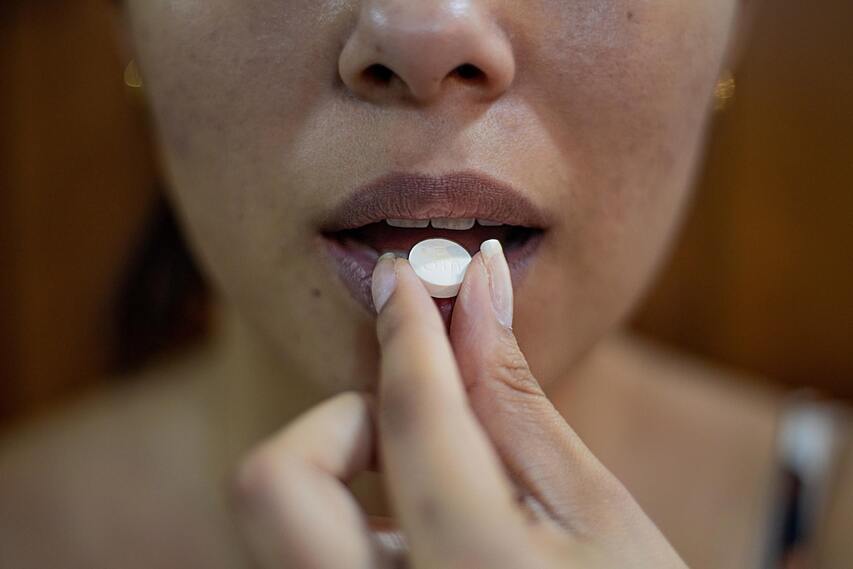Which oral medications can cause darks spots? Hyperpigmentation?

You've probably taken one of these medications: a painkiller like Ibuprofen, an antimalarial like Hydroxychloroquine, or perhaps an antibiotic from the Tetracycline family. These are everyday medications, often considered benign. But what if I told you that these medicines, while effective for their intended uses, can have an unexpected side effect: changes in skin pigmentation?
Yes, you heard that right. In this comprehensive guide, we're diving deep into medications and their lesser-known impact on your skin's coloration.
What Causes Skin Pigmentation?
Before diving into the medications themselves, understand what we mean by "skin pigmentation." The color of our skin is influenced by melanin, a natural pigment. Factors like sun exposure, hormones, and, yes, certain medications can lead to increased melanin production, which in turn causes darker patches of skin.
The Common Culprits: Medications That Cause Pigmentation (H3 Heading)
NSAIDs: Not Just for Pain
Ibuprofen: Most commonly used for pain relief, this medication can sometimes cause bluish-grey spots, particularly on the legs.
Naproxen: Similar to Ibuprofen, it's used for pain but can cause light-sensitive skin pigmentation.
Diclofenac: Mainly used for arthritis, this drug can darken the skin when applied topically.
Phenytoin: The Epilepsy Drug
Used to control seizures, Phenytoin can lead to brownish patches on the face and neck.
Antimalarials: More Than Just Mosquito Defense
Hydroxychloroquine and Chloroquine: Often used for malaria prevention, these drugs can lead to darkening of scars or existing skin conditions.
Amiodarone: The Heart-Stabilizer
Known for regulating heart rhythms, it can sometimes cause bluish-grey pigmentation, especially when exposed to sunlight.
Antipsychotic Drugs: Mind Over Melanin?
Chlorpromazine: Used for treating various mental disorders, this medication can darken the skin upon sun exposure.
Tetracyclines: Not Just an Antibiotic
Minocycline: This antibiotic is often prescribed for acne, which can cause blue-grey pigmentation in acne-prone areas.
FAQs:
Can I reverse medication-induced pigmentation?
In most cases, the pigmentation is reversible once the medication is discontinued. However, consult with your healthcare provider for personalized advice.
Are there alternatives to these medications?
Yes, there are often alternative medications that don't have this side effect. Consult your healthcare provider for options.
Is everyone susceptible to this side effect?
Not everyone experiences this side effect. Factors like dose, duration of medication use, and individual skin type can play a role.
How to Manage Medication-Induced Pigmentation
1. Sun Protection: Use a broad-spectrum sunscreen to protect pigmented areas from further darkening.
2. Topical Treatments. Creams containing hydroquinone can help lighten pigmented areas.
MDacne Oil-Free Sunscreen: A Shield for Acne-Prone Skin
Imagine a sunscreen that not only shields you from the harmful UVA and UVB rays but also takes care of your acne-prone skin. Well, MDacne's Oil-Free Sunscreen is just that! Its broad-spectrum protection, coupled with its oil-free and non-comedogenic nature, makes it a must-have.
Key Ingredients
- Octinoxate, Octisalate, Avobenzone: The gold standard for sun protection.
- Green tea and Licorice extracts: Natural ingredients that help fade dark spots.
Treatment Boosters
- Vitamin C and E: These vitamins help lighten pigmentation and protect the skin.
MDacne Advanced Dark Spot Remover: The Magic Wand for Your Skin
This dermatologist-designed cream is packed with natural Arbutin, Bearberry, and a blend of alpha and beta hydroxy acids.
Key Ingredients
- a-Arbutin, Bearberry, AHA, BHA: A potent mix for treating hyperpigmentation.
Treatment Boosters
- Vitamin E and Aloe Vera: For soothing the skin and fighting free-radical damage.
More info on the best treatment for pigmentation
Dark spots in black skin - best treatment according to Dermatologists
Advanced dark spot remover
To find the right acne treatments for your unique skin, take the free skin assessment by clicking here.


